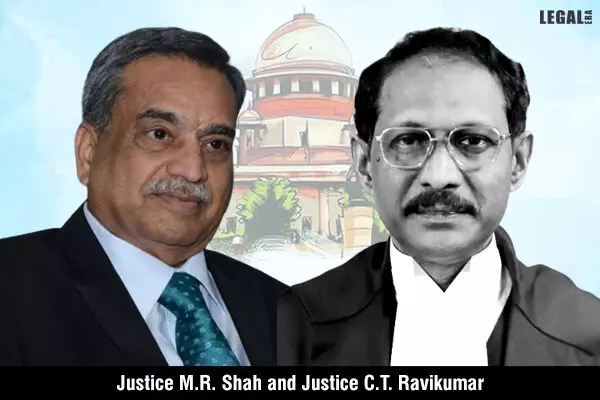- Home
- News
- Articles+
- Aerospace
- Artificial Intelligence
- Agriculture
- Alternate Dispute Resolution
- Arbitration & Mediation
- Banking and Finance
- Bankruptcy
- Book Review
- Bribery & Corruption
- Commercial Litigation
- Competition Law
- Conference Reports
- Consumer Products
- Contract
- Corporate Governance
- Corporate Law
- Covid-19
- Cryptocurrency
- Cybersecurity
- Data Protection
- Defence
- Digital Economy
- E-commerce
- Employment Law
- Energy and Natural Resources
- Entertainment and Sports Law
- Environmental Law
- Environmental, Social, and Governance
- Foreign Direct Investment
- Food and Beverage
- Gaming
- Health Care
- IBC Diaries
- In Focus
- Inclusion & Diversity
- Insurance Law
- Intellectual Property
- International Law
- IP & Tech Era
- Know the Law
- Labour Laws
- Law & Policy and Regulation
- Litigation
- Litigation Funding
- Manufacturing
- Mergers & Acquisitions
- NFTs
- Privacy
- Private Equity
- Project Finance
- Real Estate
- Risk and Compliance
- Student Corner
- Take On Board
- Tax
- Technology Media and Telecom
- Tributes
- Viewpoint
- Zoom In
- Law Firms
- In-House
- Rankings
- E-Magazine
- Legal Era TV
- Events
- Middle East
- Africa
- News
- Articles
- Aerospace
- Artificial Intelligence
- Agriculture
- Alternate Dispute Resolution
- Arbitration & Mediation
- Banking and Finance
- Bankruptcy
- Book Review
- Bribery & Corruption
- Commercial Litigation
- Competition Law
- Conference Reports
- Consumer Products
- Contract
- Corporate Governance
- Corporate Law
- Covid-19
- Cryptocurrency
- Cybersecurity
- Data Protection
- Defence
- Digital Economy
- E-commerce
- Employment Law
- Energy and Natural Resources
- Entertainment and Sports Law
- Environmental Law
- Environmental, Social, and Governance
- Foreign Direct Investment
- Food and Beverage
- Gaming
- Health Care
- IBC Diaries
- In Focus
- Inclusion & Diversity
- Insurance Law
- Intellectual Property
- International Law
- IP & Tech Era
- Know the Law
- Labour Laws
- Law & Policy and Regulation
- Litigation
- Litigation Funding
- Manufacturing
- Mergers & Acquisitions
- NFTs
- Privacy
- Private Equity
- Project Finance
- Real Estate
- Risk and Compliance
- Student Corner
- Take On Board
- Tax
- Technology Media and Telecom
- Tributes
- Viewpoint
- Zoom In
- Law Firms
- In-House
- Rankings
- E-Magazine
- Legal Era TV
- Events
- Middle East
- Africa
Supreme Court: Writ Petition Under Article 226 for Recovery of Money Ought Not to be Entertained when Petitioners have Availed Civil Remedy

Supreme Court: Writ Petition Under Article 226 for Recovery of Money Ought Not to be Entertained when Petitioners have Availed Civil Remedy
The Supreme Court ruled that writ petitions filed for seeking recovery of money due under the bills/invoices ought not be entertained under Article 226 of the Constitution of India, more particularly, when in fact the original writ petitioner(s) availed the remedy before Civil Court and filed Civil Suit, which came to be dismissed in default.
In the present case the appellant(s)- Director Of Agriculture and others., were aggrieved by the impugned judgment and order dated 16 September, 2021 passed by the Division Bench of the High Court of Kerala in Writ Appeal by which the Division Bench had dismissed the said appeal preferred by the appellant(s) and had confirmed the judgment and order passed by the learned Single Judge allowing the writ petition and directing the appellants to settle the bills/invoices of the respondent/original writ petitioner- M.V. Ramachandran.
The division bench comprising of Justices M.R. Shah and C.T. Ravikumar at the outset noted that as such for the recovery of the money alleged to have been due and payable under the bills/invoices, original writ petitioner(s)/respondent had filed before a Civil Suit before the Sub Judge at Thrissur, which, as such, was the right remedy availed. However, the said suit came to be dismissed in default. The Respondent took steps to restore the suit and withdraw it, but prior to the same the writ petition was filed before the High Court.
The Apex Court rebuked the High Court’s decision to entertain the writ petition and observed, “we fail to appreciate how the writ petition before the learned Single Judge could have been entertained for recovery of money alleged to have been due and payable under the bills/invoices.”
The bench held that the learned Single Judge, as such, ought not to have been entertained the writ petition under Article 226 of the Constitution of India for recovery of money under the bills/invoices, more particularly, when in fact the original writ petitioner(s) availed the remedy before Civil Court and filed Civil Suit, which came to be dismissed in default.
The Apex Court observed that writ petitions for recovery of money due under bills/invoices cannot be entertained. Accordingly, the orders passed by the Single Judge and the Division Bench, allowing the writ petition, have been set aside. The Respondent was granted liberty to pursue its remedy before the Civil Court through restoration of civil suit.
The Trial Court has been directed to restore the Respondent’s suit if an application for restoration is made within six weeks.



